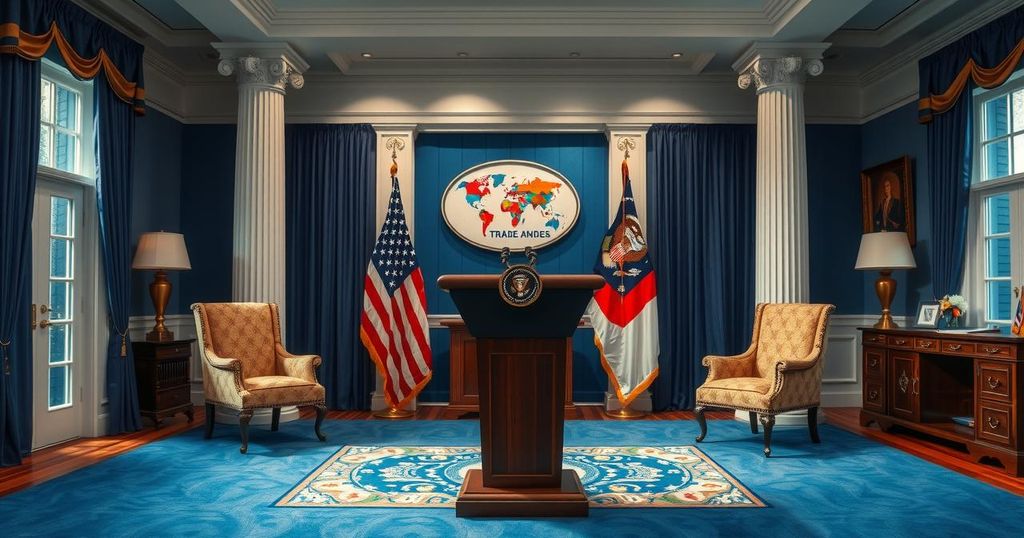Controversy Erupts Over Alleged U.S. Military Plans for Yemen Revealed by Atlantic Editor
The article discusses a significant incident where The Atlantic’s Jeffrey Goldberg claims to have seen detailed plans for U.S. military strikes in Yemen via a Signal message chain with Trump administration officials. Defense Secretary Pete Hegseth denies such discussions took place, leading to debates about credibility and national security protocols.
The Atlantic magazine’s Editor-in-Chief, Jeffrey Goldberg, claimed to have seen a detailed account of how the U.S. planned to bomb Yemen through a Signal message chain involving Trump administration officials. Despite Defense Secretary Pete Hegseth’s emphatic denial that such sensitive war plans were discussed, Goldberg insisted he observed minute-by-minute details of the intended strikes against the Houthi group. The commentary was made in a recent interview, heightening concerns surrounding national security.
Goldberg elaborated that the message included specific times, targeted individuals, weapon systems, and even weather reports concerning the planned attacks. He indicated a sense of responsibility in discussing the content without revealing sensitive details. The editor noted the thoroughness of the plan, asserting it was organized by CENTCOM, the military oversight group for the Middle East.
In response, Hegseth labeled Goldberg as “deceitful and highly discredited,” refuting the notion that a war plan was under discussion. However, Goldberg countered that the detail he witnessed constituted a clear outline of impending military actions. He reflected on the precariousness of the situation, emphasizing the importance of information security in such scenarios.
Goldberg revealed he was added to the message chain, called “Houthi PC small group,” by Trump’s national security advisor, Mike Waltz, shortly before the military strikes were executed on March 15. Although Hegseth condemned Goldberg’s portrayal of events, he did not clarify the use of Signal for such discussions or how Goldberg ended up on the chain.
National Security Council spokesman Brian Hughes acknowledged the authenticity of the message chain and noted a review regarding the inadvertent inclusion of Goldberg. White House spokeswoman Karoline Leavitt affirmed President Biden’s confidence in Waltz and the national security team amid the controversy. Former President Trump dismissed the incident, stating he was unaware of the situation and criticizing The Atlantic as not being a credible publication.
In summary, Jeffrey Goldberg’s revelation of the Signal message chain has raised significant concerns regarding national security protocols in discussing military operations. Despite dispute from Defense Secretary Hegseth and the condemnation of Goldberg’s credibility, the incident has drawn attention to the oversight and handling of sensitive communications in government. The response from both the National Security Council and the White House further indicates ongoing scrutiny of communication practices among key officials.
Original Source: nypost.com








Post Comment